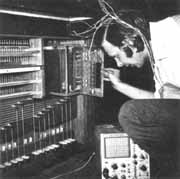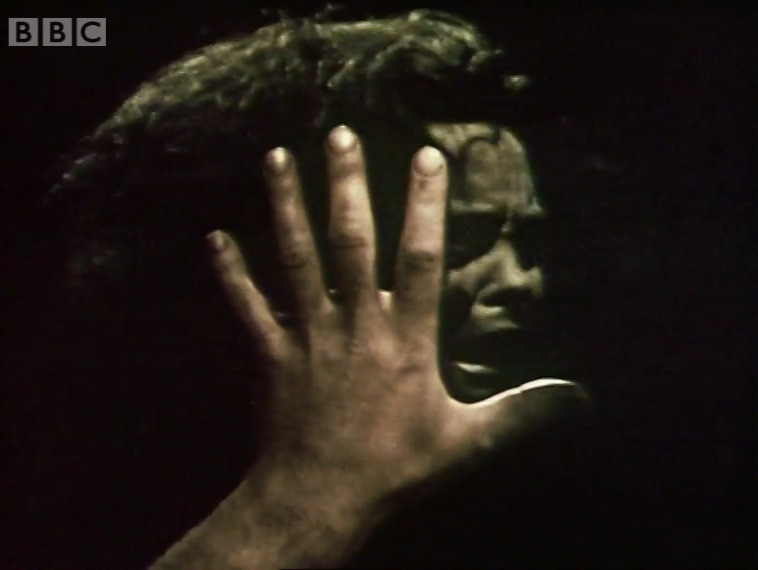Clive Webster appears to have been at the Workshop for about three years, starting in 1966. Although he has tapes and works to his name it seems he was in a similar role to Dick Mills, straddling engineering and creative roles. Clive graduated from the University of London with a degree in Electrical Engineering. He worked at the BBC in a role liaising between studio engineering and the creative side of programme making which would seem to have been ideal preparation for his time at the Workshop. His fingerprints are on the development of the Crystal Palace1 and his place seems to have been similar to that held by Richard Yeoman-Clarke, working on new devices, filling in on smaller effects and engineering assistant jobs making tape copies and so on.
His largest contribution is a radio sci-fi series Host Planet Earth (see below).
After the Workshop stint, Clive was loaned by the BBC to help Tristram Carey establish the Royal College of Music’s electronic music studio in London2. Following this he seems to have crossed the pond to take up a position as Technical Director of pipe organ manufacturers Lawrence Phelps and Associates based in Eerie, Pennsylvania3.

Clive Webster’s time to shine. “A new discovery enables space craft to visit distant regions of the universe within weeks instead of years. But while the dummy run is in progress a mysterious outbreak of illness, sometimes fatal, occurs among the scientists concerned.” Electronic sound and music by the BBC Radiophonic Workshop
Continue Reading 30th July 1967 – Host Planet Earth broadcast (Light Programme)
AKA Moments of Terror. The first edition – No Such Thing as a Vampire – of a new horror anthology series, with suitably unsettling title music by Dick Mills.
Continue Reading 19th April 1968 – Late Night Horror broadcast (BBC Two)
- A footnote in Special Sound implies that Clive was part of the Radiophonic Technical Committee ↩︎
- http://etheses.dur.ac.uk/3915/1/Nicola_Candlish_PhD_2012.pdf?DDD23+
↩︎ - https://www.lawrencephelps.com/Documents/Articles/pbrochure.shtml ↩︎
